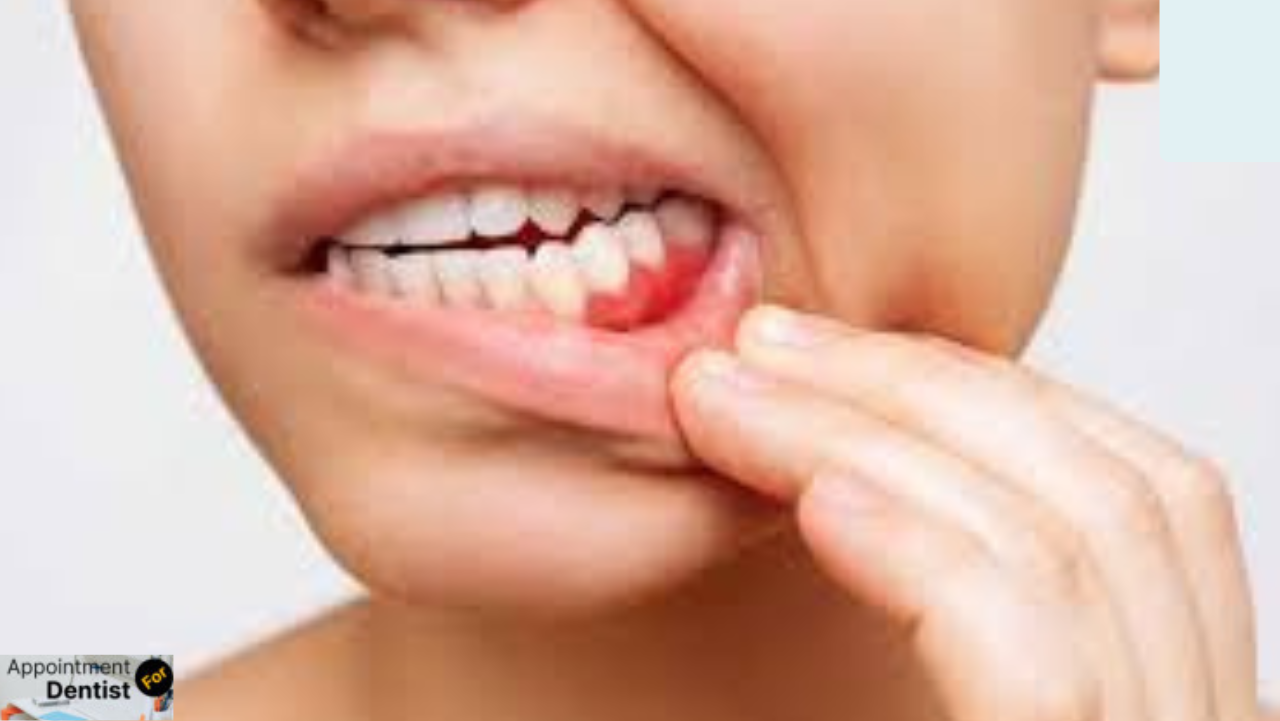Why You Shouldn’t Ignore Bleeding Gums
Posted on June 11, 2024 by Admin

Why You Shouldn’t Ignore Bleeding Gums
Bleeding gums may seem like a minor inconvenience, but they can be a sign of underlying dental issues that should not be ignored. While occasional bleeding during brushing or flossing may not seem alarming, persistent or recurrent bleeding gums can indicate gum disease or other oral health problems. In this article, we'll delve into why you shouldn't overlook bleeding gums and the potential consequences of ignoring this symptom.

Sign of Gum Disease:
Gum disease occurs when plaque, a sticky film of bacteria, builds up along the gumline and irritates the gums, leading to inflammation and bleeding. If left untreated, gum disease can progress to more advanced stages, causing gum recession, tooth loss, and even damage to the underlying bone.
Poor Oral Hygiene:
Inadequate oral hygiene is a common cause of bleeding gums. When plaque is not regularly removed through brushing and flossing, it can harden into tartar, which can only be removed by a professional dental cleaning. Tartar buildup along the gumline can cause irritation and inflammation, leading to bleeding gums. Maintaining good oral hygiene habits is essential for preventing and treating bleeding gums.
Hormonal Changes:
Hormonal changes, such as those occurring during pregnancy or puberty, can increase the likelihood of experiencing bleeding gums. Hormonal fluctuations can make the gums more susceptible to inflammation and bleeding in response to plaque buildup. Pregnant women, in particular, may experience pregnancy gingivitis, a type of gum disease characterized by swollen, tender, and bleeding gums. Proper oral hygiene and regular dental care can help manage hormonal-related gum issues.
Medication Side Effects:
These medications work by inhibiting blood clotting, which can lead to easier bleeding from the gums, especially during brushing or flossing. If you're taking medication that affects blood clotting, it's essential to inform your dentist so they can provide appropriate recommendations for managing bleeding gums.
Systemic Health Conditions:
Bleeding gums can also be a symptom of underlying systemic health conditions, such as vitamin deficiencies, blood disorders, or immune system disorders. For example, a deficiency in vitamin C can lead to scurvy, a condition characterized by bleeding gums and other oral symptoms. Additionally, autoimmune conditions such as lupus or leukemia can manifest with oral manifestations, including bleeding gums.

Consequences of Ignoring Bleeding Gums:
Ignoring bleeding gums can have several consequences, including:
Progression of Gum Disease:
Untreated gum disease can lead to gum recession, tooth loss, and bone damage.
Chronic Bad Breath: Gum disease and poor oral hygiene associated with bleeding gums can contribute to persistent bad breath.
Increased Risk of Systemic Health Issues:
Emerging research suggests a link between gum disease and systemic health conditions such as heart disease, diabetes, and respiratory infections. Ignoring bleeding gums may increase your risk of developing these health issues.
Conclusion:
Bleeding gums should not be overlooked, as they can be a sign of underlying dental problems or systemic health conditions. If you're experiencing persistent or recurrent bleeding gums, it's essential to seek professional dental care to determine the underlying cause and receive appropriate treatment. By addressing bleeding gums early, you can prevent the progression of gum disease and maintain optimal oral and overall health.
Faqs
-
1. What Causes Bleeding Gums?
Bleeding gums can be caused by several factors including poor oral hygiene, gingivitis (early stage of gum disease), periodontitis (advanced gum disease), vitamin deficiencies (such as Vitamin C and K), hormonal changes, certain medications, and improper brushing or flossing techniques.
-
2. When Should I See a Dentist for Bleeding Gums?
You should see a dentist if your gums bleed frequently, if the bleeding is severe, if you have persistent bad breath, if you experience pain or swelling, or if home remedies do not improve the condition within a week.
-
3. Can Bleeding Gums Be a Sign of a Serious Condition?
Yes, bleeding gums can be a sign of serious conditions like periodontitis, which can lead to tooth loss if untreated. It can also indicate systemic issues such as diabetes, blood disorders, or other health problems.
-
4. How Is Bleeding Gums Treated by Dentists?
Dentists treat bleeding gums by performing professional cleanings to remove plaque and tartar, prescribing antibiotics if there is an infection, recommending a suitable oral hygiene routine, and in severe cases, performing procedures like scaling and root planing or gum surgery.
Recent Post
- The Importance of Oral Health Education for Children
- How to Choose the Right Orthodontic Treatment for Adults
- The Link Between Oral Health and Stroke Risk
- How to Address and Prevent Gum Recession
- Innovations in Dental Anesthesia: Pain-Free Procedures
- The Role of Saliva in Oral Health: Functions and Disorders
- Exploring Holistic Dentistry: What You Need to Know
- How Oral Health Affects Your Immune System
- The Benefits of Using Dental Probiotics
- Oral Health and Pregnancy: Myths and Facts